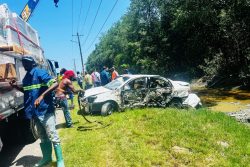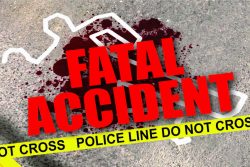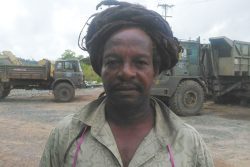CONCEPCION, Chile (Reuters) – A series of strong aftershocks rattled south-central Chile yesterday, panicking residents nearly a week after one of the most powerful earthquakes on record rocked the area and killed hundreds of people.
The government of outgoing President Michelle Bachelet, already facing criticism for its slow response to the quake, said it was revising faulty death toll figures after authorities mistakenly tallied scores of missing who later turned up alive.
Many people who survived Saturday’s 8.8-magnitude quake were killed hours later by a massive tsunami, outraging Chileans who say there was no warning the waves were coming.
The Chilean navy has acknowledged there was a breakdown in its tsunami-alert system, and yesterday it fired the head of the agency in charge of issuing catastrophe warnings.
In the ravaged city of Concepcion, the country’s second largest, some people ran out of their houses or jumped out of the vehicles they have been sleeping in since their homes were destroyed as seven intense tremors shook the area on Friday.
The strongest of the aftershocks was a magnitude 6.6.
“Some chunks of buildings that were already in bad condition fell, but nothing significant,” the top government official in quake-hit Bio Bio region told local radio.
Saturday’s quake, and a series of giant waves that followed, destroyed hundreds of thousands of homes, wrecked bridges and roads, and cracked modern buildings in half in the capital, Santiago. It also wreaked havoc on some of Chile’s famous wineries and briefly shut down some of the world’s richest copper mines.
The navy said there was no risk of tsunamis from the new aftershocks and people did not stray too far into the streets of Concepcion since the army had imposed a curfew until mid-day to control sporadic looting.








